|
Invasive Species
2002-2003 Archives 2004 Archives 2005 Archives 2006 Archives |
||
|
|
||
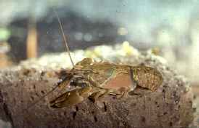 |
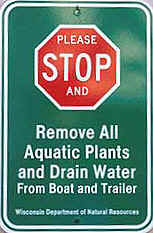 |
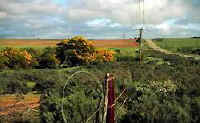 |
|
Invasive Species
2002-2003 Archives 2004 Archives 2005 Archives 2006 Archives |
||
|
|
||
 |
 |
 |
|
|
|
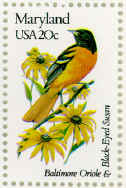
|
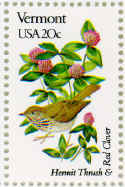
|
|
|
|
| "It is broadly felt that the Eurasian ecotype is far more aggressive than the native ecotype. Due to the fast growth and spread of the Eurasian ecotype, this strain was preferred to be planted in the U.S. in the past for erosion control and forage. Although no methods exist to tell the ecotypes apart, it is suspected that the majority of the reed canary grass now in the U.S. is the Eurasian type." http://www.in.gov/dnr/invasivespecies/REED%20CANARY%20GRASS.pdf "Aquatic Invasive Species: Reed Canary Grass" (Page 2 of 3 pages; 349 KB) | |
|
|
|
| "The zebra mussel may be impossible to control and may cause major changes, some of which may be beneficial. Western Lake Erie and Saginaw Bay of Lake Huron -- once clear waters -- became artificially enriched and plagued with high turbidity caused by runoff from agricultural lands. The filtering action of the zebra mussels in these areas may reduce turbidity and restore water clarity to historical levels, thus benefiting native fishes adapted to clear water." Source: http://biology.usgs.gov/s+t/SNT/noframe/gl127.htm | |
|
|
|
|
"...confusion is the INTENT of TNC
& Co.: Language deception." - Fred Grau, June 15, 2005.
(TNC - The Nature Conservancy)
|
|
|
|
|
| Each state has a Noxious Weed List and is responsible for controlling these weeds. Each area has a different type of weed and therefore should be (and is) controlled at the local level. Trying to implement a 'one size fits all' approach will not work. - Sharon Shumate, Republic, Washington, February 9, 2003 | |